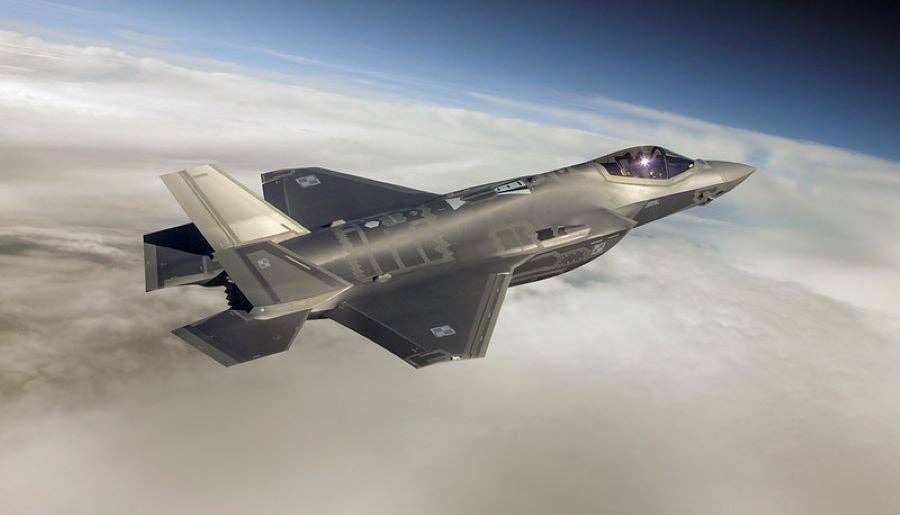Ex-U.S. Army Pilot Pleads Guilty To Selling Secrets to China
A 67-year-old defense contractor lied to get a security clearance and sold proprietary aviation technology information to China, according to DOJ officials.

The U.S. Department of Justice charged Shapour Moinian with selling proprietary information about aviation technology to China and lying to get a security clearance. [File photo: Adobe Stock]
A former U.S. Army helicopter pilot working as a U.S. defense contractor faces up to 15 years in prison after he admitted to selling proprietary information about aviation technology to China and lying to get a security clearance, according to the Department of Justice.
Shapour Moinian, 67, of San Diego, pleaded guilty in federal court Thursday to charges related to acting as an agent for a foreign government, selling aviation-related information that belonged to the U.S.-based defense contractor he worked for, and making false statements.
The DOJ did not identify the contractor.
“Moinian was a paid agent of the Chinese government who sold American aviation-related technology,” Assistant Attorney General Matthew G. Olsen of the Justice Department’s National Security Division said in a statement. “The Department of Justice has no tolerance for those who help foreign governments break the law to undermine American competitiveness and innovation.”
According to federal officials, Moinian's Army service began in 1977. He left the service in 2000 and began working for defense contractors in the U.S. that were cleared for work on projects involving classified information.
It was while working for a cleared defense contractor that he was approached by a representative of the Chinese government claiming to be a technical recruiter who offered him an opportunity as an aviation consultant in China, the DOJ said.
According to the DOJ, Moinian traveled to Hong Kong in March 2017 and met with the recruiter, agreeing to sell materials and information regarding multiple types of aircraft designed in the U.S. During the meeting, he was paid between $7,000 and $10,000 for the information.
Moinian then returned to the U.S. and placed the proprietary information on a thumb drive. Months after the initial meeting—in September 2017—Moinian took another international trip. During a stopover in Shanghai, he gave the thumb drive to a Chinese government official. He then arranged to receive payment for the transaction through his stepdaughter's bank account in South Korea.
"Moinian told his stepdaughter that these funds were payment for his consulting work overseas and instructed her to transfer the funds to him in multiple transactions," the DOJ said.
In 2018, during a trip to Bali and before taking a new job with another defense contractor, Moinian met with the same contacts. That same year, Chinese officials again transferred thousands of dollars to the stepdaughter's South Korean bank account, which she then wired to him in multiple transactions, the DOJ said.
In 2019, he traveled to Hong Kong to meet with the contacts. During that trip, however, they paid him $22,000 in cash.
"Moinian and his wife smuggled this cash back into the United States," the DOJ said. "According to his plea agreement, Moinian also admitted that he lied on his government background questionnaires in July 2017 and March 2020, when he falsely stated that did not have any close or continuing contacts with foreign nationals and that no foreign national had offered him a job."
According to FBI officials, the case illustrates the lengths China will go to in obtaining proprietary information from the U.S. to boost its defense capabilities, as well as its use of social media as a means of identifying a potential mark.
“The People’s Republic of China remains determined to acquire our information and technology," Alan E. Kohler Jr., assistant director of the FBI’s Counterintelligence Division, said in a statement. "In this case, we witnessed a former U.S. government employee acting as an agent of the government of China and Chinese intelligence officers’ extensive use of social media to identify willing targets."
Moinian is scheduled to be sentenced in federal court on August 29.
“This defendant took the aviation materials of his American employers and sold them to China,” said Randy Grossman, U.S. Attorney for the Southern District of California. “This conduct was an outrageous breach of trust by a former member of the U.S. military. The United States will aggressively investigate and prosecute anyone who works at the direction of foreign governments to steal American technology and intellectual property.”

Subscribe to Our Newsletter
Get the latest FLYING stories delivered directly to your inbox






